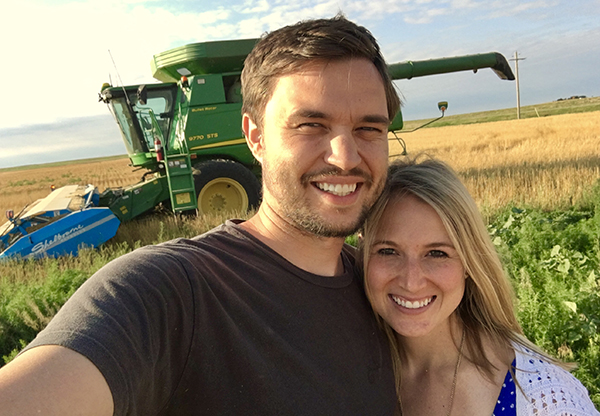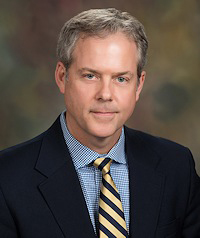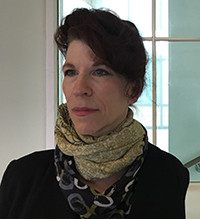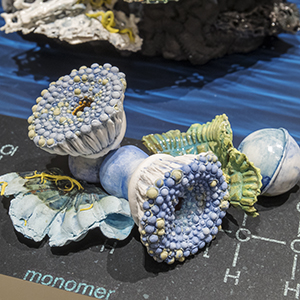Holding Water
Professionals in various fields do their part to sustain vital resource

From The Ichabod - Winter 2021
Life is impossible without water. But Earth’s most important resource is necessary for much more than just survival. Without it, countless occupational and recreational activities would also cease to exist.
Below, farmers and professors share why they’ve chosen to make the sustainability of water a central focus of their life’s work. This will be a topic of discussion during this spring’s WUmester, when the theme of sustainability is explored.
Farming for the Future
As the owners of a growing family farm near Montezuma, Kansas, Garrett Love, bba ’10, and Caley Love, ba ’11, are proving crops can be grown successfully while using
a responsible amount of water.
Garrett followed in his parents’ footsteps, establishing a farm just outside his hometown in Western Kansas. For generations, large swaths of land in the area were devoted to corn, but when the market went up for other crops that use less water, pivoting was a no-brainer.
“There’s been much higher demand for sorghum recently, which brought the price up and encourages a lot more people to grow it,” he said. “That gives you bigger yields with less water, so hopefully it stays strong.”
Garrett was appointed to a groundwater management district board, which encourages area farmers to conserve water. As the parents of three children, they say there’s additional motivation to “not use a drop more than we need.”
“My oldest girl, Abby, already says she’s either going to be a doctor or a farmer,” he said. “She’s 5 years old and proud to be a farm girl. Our decisions we’re making now influence her future, so we want to be thoughtful about using water as wisely as possible.”
Legal Streaming
Washburn University School of Law Associate Professor Burke Griggs covers a wide range of topics in his property and natural resources law courses, but his passion runs deepest for water.
“There’s no substitute for water,” he said. “You can’t irrigate and grow crops with something other than water.”
 Before coming to Washburn in 2016, Griggs was a Kansas assistant attorney general who successfully represented the state in Kansas v. Nebraska, a United States Supreme Court case brought to protect Kansas’ rights under the Republican River Compact. While Kansas’ victory in that case helped alleviate some of the state’s concerns about surface waters supplies, the depletion of the Ogallala Aquifer poses an even greater threat, said Griggs.
Before coming to Washburn in 2016, Griggs was a Kansas assistant attorney general who successfully represented the state in Kansas v. Nebraska, a United States Supreme Court case brought to protect Kansas’ rights under the Republican River Compact. While Kansas’ victory in that case helped alleviate some of the state’s concerns about surface waters supplies, the depletion of the Ogallala Aquifer poses an even greater threat, said Griggs.
A statute Griggs drafted in 2012 as senior legal counsel for the Kansas Division of Water Resources provides a means for irrigators to voluntarily bind themselves to pumping reductions, protecting long-term water supplies where rainfall is sparse.
“There are areas in Western Kansas where irrigators have agreed to reduce usage by 20 to 25%,” he said. “By doing so, they’ve substantially extended the practical life of their groundwater supply.”
As a professor, Griggs uses unique methods like bringing ducks into the classroom and planning field trips to prove irrigators aren’t the only party with a stake in sustainability.
“My plan, post-COVID, is to teach a field class on the Arkansas River where I can show students how one river can be so varied and support so many industries, from recreation to irrigation and ranching to oil and gas production,” he said.
The Art of Water
Marguerite Perret, a Washburn art professor since 2003, also finds hands-on ways to illustrate to her classes the importance of sustainability. Her artwork frequently focuses on the need for positive environmental changes, and by including students in the creative process, she provides a platform to voice their own thoughts about water’s importance.
 For her project titled "Signaling Water," which was displayed in France and Japan in 2019, Perret’s Contemporary Art Practices class created a series of modified maritime flags reflecting issues like water pollution and climate change. Students in her fall 2020 class designed postcards for an exhibit titled "Postcards from the Hydrosphere During a Pandemic," which is currently showing at Oklahoma State University.
For her project titled "Signaling Water," which was displayed in France and Japan in 2019, Perret’s Contemporary Art Practices class created a series of modified maritime flags reflecting issues like water pollution and climate change. Students in her fall 2020 class designed postcards for an exhibit titled "Postcards from the Hydrosphere During a Pandemic," which is currently showing at Oklahoma State University.
“There are dual purposes,” Perret said of involving students in the exhibits. “It raises awareness of the issues but also, having their work on display provides experience that helps them move forward in their careers.”
“Environmental artists used to be considered outside of mainstream,” she said. “Now, it’s a major theme artists explore. The younger generation feels the weight of it, and they’re looking for ways to express themselves about this and ways to make change.”

See more of Marguerite Perret's work.